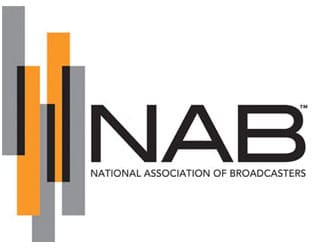They loved it, or they hated it. They thought it went too far, they thought it didn’t go far enough, they thought it was just about perfect. But they all have an opinion about FCC Chairman Julius Genachowski’s “third way” approach to broadband regulation going forward. In general, Democrats and public interest groups gave thumbs up, Republicans and communications entities gave thumbs down.
Here are just some of the comments:
* Democratic FCC Commissioner Michael Copps: Today Chairman Genachowski announced his plan to remove the legal cloud hanging over the FCC’s ability to protect America’s broadband users. This plan can put us on the right road—if we travel that road swiftly, surely and with the primary goal of protecting consumers foremost in our minds. Frankly, I would have preferred plain and simple Title II reclassification through a declaratory ruling and limited, targeted forbearance…But we should welcome this step toward bringing broadband back under the Title II framework where it belongs. It was a travesty to move it in the first place, and those decisions cost consumers, small businesses and the country enormous competitive disadvantage.
* Republican FCC Commissioners Robert McDowell & Meredith Baker in joint statement: Today the Commission embarks on a journey to cross a regulatory Rubicon by classifying Internet access service as traditional telephone service under Title II of the Communications Act. This proposal is disappointing and deeply concerns us. It is neither a light-touch approach, nor a third way. Instead, it is a stark departure from the long-established bipartisan framework for addressing broadband regulation that has led to billions in investment and untold consumer opportunities. It also poses serious ramifications across the globe… Fundamentally, this dramatic step to regulate the Internet is unnecessary.
* Democratic FCC Commissioner Mignon Clyburn: If we truly support universal access to broadband, if we are serious about transparency in broadband speeds and billing, if our aim is to strengthen our nation’s cybersecurity, and if we care about ensuring meaningful access to communications technologies by people with disabilities, then Title II authority is essential. The fact that the Chairman has been able to find a way to accomplish this without unnecessary and burdensome regulations on industry means a victory for all parties.
* Kyle McSlarrow, NCTA: We firmly believe that the case for new regulation of the Internet has not been made. Today’s competitive and dynamic broadband marketplace already operates according to openness principles that have broad industry consensus and serve consumers well.
* Rep. Ed Markey (D-MA): With this decision, the FCC will ensure that the agency remains the ‘cop on the beat,’ protecting consumers and competition on the World Wide Web. Chairman Genachowski’s proposal appears to be a smart, Solomonic middle way to ensure continued innovation, consumer protection and certainty in the broadband marketplace.
* Sen. Kay Bailey Hutchison (R-TX): I am profoundly disappointed with the Chairman’s decision. The desire by some to pursue net neutrality must not trump our need for a predictable regulatory framework that encourages continuing investment in communications networks. This decision is not a middle ground, this is about imposing restrictions on how private companies manage and maintain their investments.
* S. Derek Turner, Free Press: By putting the FCC’s regulatory framework back in harmony with congressional intent, Chairman Genachowski is reversing one of the worst deregulatory mistakes of the past decade. This is a step in the right direction that rejects the special interests of giant network owners. But he should be cautious about throwing out rules that would promote competition and affordability. The Chairman’s plan appears to preemptively abandon important provisions of the law that serve consumers.
* Steve Largent, CTIA: While we are disappointed with the Title II net neutrality announcement today, CTIA will continue to work to educate policymakers, including the FCC, on why net neutrality rules should not apply to wireless. This is an incredibly innovative and competitive industry that provides millions of jobs and contributes billions of dollars to our economy and is the world’s leader in the provision of mobile broadband service. This complex, interdependent ecosystem is currently thriving to the benefit for all Americans. Putting that success at risk is unnecessary and dangerous, particularly in today’s economic environment.




